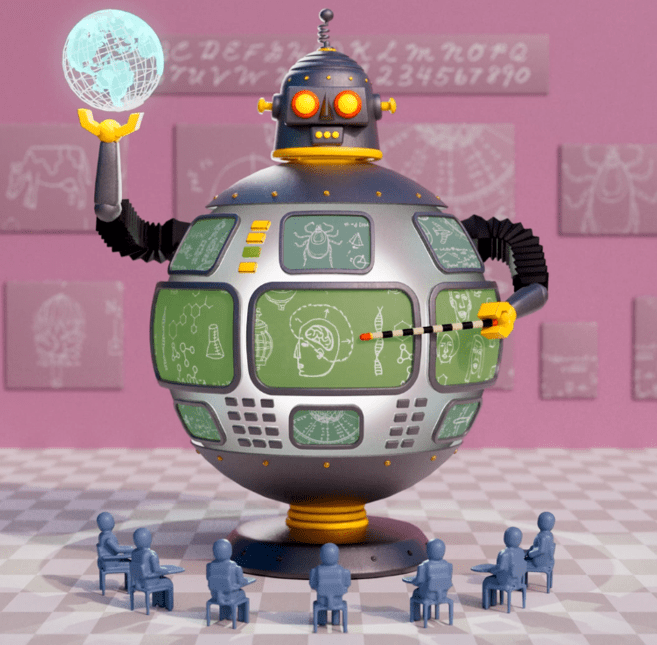Tools powered by generative AI can annotate lengthy documents, generate flashcards, and generate practice exams.

I discussed how to transform your chatbot into a life coach last week. Since last year, many have been experimenting with artificial intelligence in education.
The specialty of generative A.I. is language (identifying the next word), and students soon realized they could use ChatGPT and other chatbots to write essays. This created embarrassing situations in a number of classrooms. The fact that generative A.I. is prone to hallucinating makes it simple to catch it deceiving, a phenomenon known as “hallucinating.”
However, generative AI can also serve as a study assistant. Some tools summarize lengthy research papers and even answer queries about the subject matter. Others are able to create study aids such as quizzes and flashcards.
A word of caution: when studying, the accuracy of the information is of the utmost importance, and for the most accurate results, you should instruct A.I. tools to concentrate on information from trusted sources rather than pulling data from the entire web. I’ll explain how to accomplish this below.

Research
Let’s begin by examining one of the most arduous academic tasks: reading and annotating lengthy papers. Some artificial intelligence tools, such as Humata.AI, Wordtune Read, and various ChatGPT plug-ins, function as research assistants that summarize documents on your behalf.
I favor Humata.AI because it provides answers to your queries and emphasizes directly within the source material, allowing you to double-check its accuracy.
I uploaded a PDF of a scientific research paper on the accuracy of wearables in monitoring cardio fitness to the Humata.AI website. I then selected the “Ask” icon and inquired about the performance of Garmin watches in the study. It highlighted the pertinent section of the document mentioning Garmin and provided the answer to my query.
Most intriguing to me was when I asked the machine if my interpretation of the paper was accurate: that wearable devices such as Garmins and Fitbits tracked cardio fitness fairly accurately on average, but there were some individuals whose results were wildly inaccurate. The machine replied, “You are correct.” The conclusion was followed by a summary of the study and a list of the page numbers where it was mentioned.
Studying
Additionally, generative AI can assist with rote memorization. While any chatbot can generate flashcards or assessments if you paste in the information you’re studying, I chose ChatGPT because it includes plug-ins that generate study aides from particular web articles and documents.

(Only $20 per month ChatGPT Plus subscribers may use plug-ins. In a prior newsletter, we detailed their application.)
I wanted ChatGPT to make me flashcards for learning Chinese vocabulary. To accomplish this, I installed two plug-ins: Link Reader, which allowed me to instruct the program to use data from a specific website, and MetaMentor, which generates flashcards automatically.
I selected both plug-ins within the ChatGPT dashboard. Then I composed the following prompt:
“Serve as a mentor. I am an English native speaker studying Chinese. Create a set of flashcards for each of the vocabulary words and expressions.”
About five minutes later, the bot responded with a link where I could download the flashcards. They were exactly what I asked for.

Next, I wanted my tutor to quiz me. I told ChatGPT that I was studying for the written exam to get my motorcycle license in California. Again, using the Link Reader plug-in, I pasted a link to the California D.M.V.’s latest motorcycle handbook (an important step because traffic laws vary between states and rules are occasionally updated) and asked for a multiple-choice quiz.
The bot processed the information inside the handbook and produced a quiz, asking me five questions at a time.
Finally, to test my grasp of the subject, I directed ChatGPT to ask me questions without presenting multiple-choice answers. The bot adapted accordingly, and I aced the quiz.
I would have loved having these tools when I was in school. And probably would have earned better grades with them as study companions.

